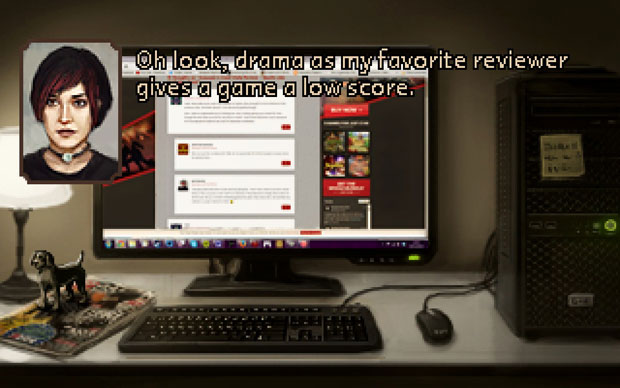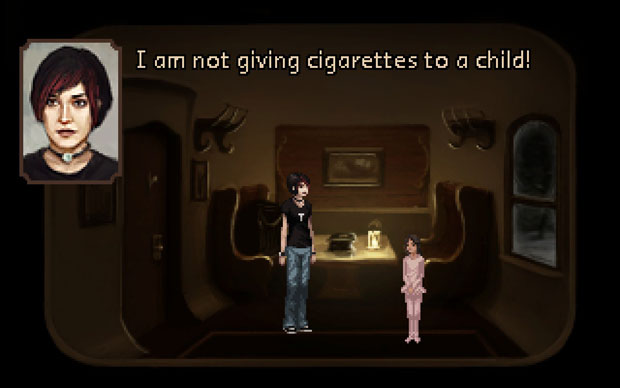Wot I Think: The Charnel House Trilogy
Tombsday
Inhale, Sepulchre and Exhale make up The Charnel House Trilogy [official site]. It's a point and click project devised by developers Owl Cave which follows two passengers as they take a train journey to a remote location.
Sepulchre was initially released a couple of years back and I was fond of it as a standalone piece. It's a vignette which taps into older horror story tropes – the ones which involve creepiness and that very Victorian morbid fascination with the tomb – rather than body horror or torture porn. Now bookended and recontextualised by Inhale and Exhale I'm struggling to find that former fondness.
With the Charnel House Trilogy it's hard to talk specifics without giving anything away. Thus, in the interests of those who do wish to play, I'll be sticking to generalities.
Inhale is a very short segment which introduces main character Alex Davenport and offers up a little in the way of her backstory and motivation for taking the train journey to Augur Peak. It's also a pastiche of the point and click genre. The remarks Alex makes about objects and situations have an awareness of the genre's peccadillos, and her attitude to the fourth wall's permeability is familiar.
But instead of being wry asides which delight when you encounter them, I mostly found those moment irritating and disruptive. There are jokes about videogame websites and magazines and PC gaming which felt like they were fishing for sharable screenshots and a moment at a bookshelf which might as well have had Miranda Hart turning to camera at the end of it.
That chapter also introduces author Madeleine Roux, game critic Jim Sterling and sometime RPS columnist Cara Ellison as Alex, her neighbour Robert and a radio presenter respectively. I thought Roux's performance was a good one and grows stronger as the game goes on but familiarity with Sterling and Ellison in other contexts meant their voices tended to be immersion-breaking.
I appreciate that readers might have a different experience but for me Inhale feels weirdly caught up in the gaming industry with its inside jokes and cameos. It's a discordant experience which frequently undermines the atmosphere it tries to create.
Sepulchre is up next and is more sure of itself. It's a ghost story; a mood piece which follows a man called Dr Harold Lang as he tries to work out what's going on aboard a mysterious train. It's still good, but it now suffers coming on the heels of the clunky Inhale and I never quite sank into it as I have previously. I think there's a delicacy to the story which is lost when it's put together with the unsubtle Inhale and the overwrought Exhale.
Speaking of which, Exhale returns the focus to Alex. It's not a bad story but where Sepulchre dealt in a gradually building creepiness Exhale has a teen horror sensibility revolving around escalating gruesome reveals. If Sepulchre is occupying The Masque of the Red Death-type territory, Exhale is Pretty Little Liars. That's not a bad thing per se (do you have any idea how much I watch Pretty Little Liars?), but the tonal differences mean neither story seems to benefit from being the bedfellow of the other. In Exhale's case the preceding slow burn of Sepulchre made Alex's increasingly sweary direct approach jarring at points even though it made sense within her own story.
Shifting attention to other aspects than the narrative, the score is really strong – well-constructed both in terms of setting the scene and augmenting dramatic moments. The art style is similarly strong; a pixel art point and click aesthetic with a muted palette courtesy of Ben Chandler and Ivan Ulyanov. Score and art style are constant pleasures across the trilogy but neither can resolve the tonal mismatches and disjointedness of the whole.
The conclusion suggests that there is more to come in the saga of Augur Peak in 2016. I'm not sure how I feel about that. The story so far doesn't feel like it hangs together tonally and Sepulchre's strengths (as I saw them) recede now they're placed in the context of the wider narrative.


